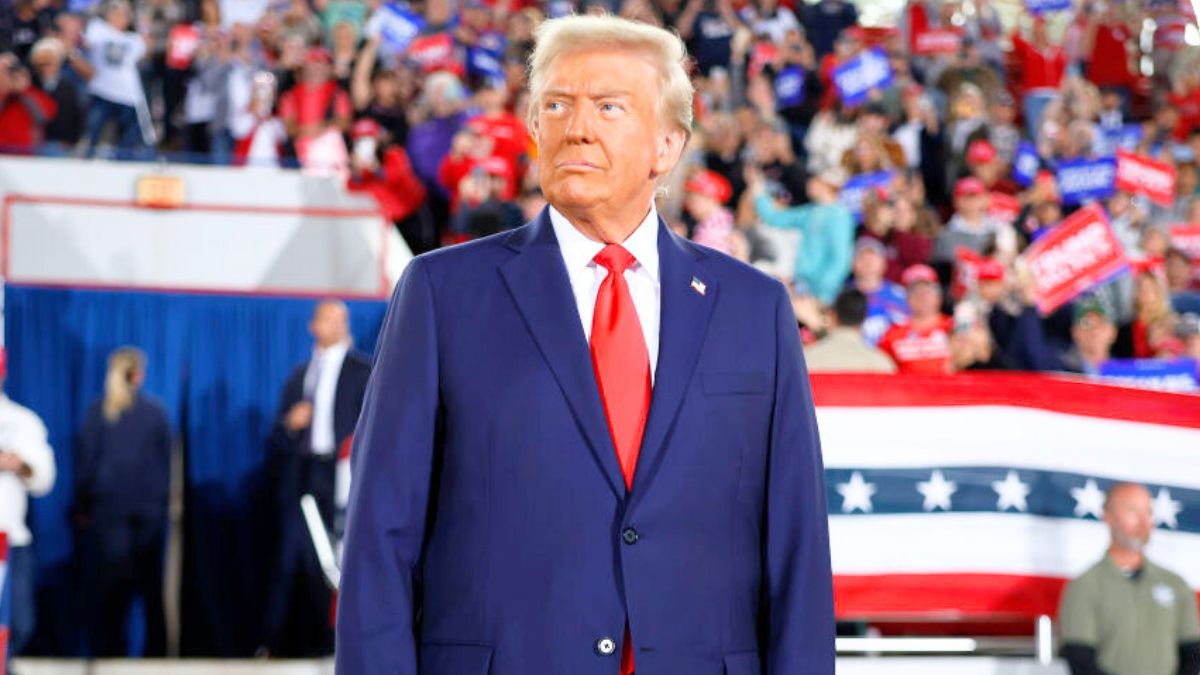‘No part of the FBI’s mission is safe’: Trump may destroy the FBI to appease MAGAs

Donald Trump’s (or Project 2025’s) plans for the FBI have been reduced to something more straightforward—and potentially devastating—than a narcissist’s revenge play against his perceived enemies. Through a combination of his personnel choices and favorable structural changes, Trump looks poised to fundamentally reshape America’s top cop shop in favor of present and future charlatans.
In the sightlines of Trump’s strategy sits an executive order he’s vowed to reinstate on day one, paving a road to mass termination of federal employees. This directive, which President Biden previously canceled, would strip civil service protections from thousands of career officials—the lifeblood of government—including those at the FBI, who are already prepping and digging in for the prolonged assault on the institution.
The personnel choices seem to signal Trump’s intentions, or at least his desire for loyalty in the course of his mission. His consideration of Mike Rogers as FBI Director paired with MAGA loyalist Kash Patel as Deputy Director, for example, reveals a two-pronged approach. First, install a seemingly moderate director to ease Senate confirmation, then place a trusted ally to energize what is traditionally a non-political operational role. As former FBI Deputy Director Andrew McCabe warned, “No part of the FBI’s mission is safe with Kash Patel in any position of leadership.” The Trump administration claims Rogers isn’t in line for Trump’s tip; Patel, though, will be in play in some fashion.
The significance of potentially placing Patel in the deputy role cannot be overstated. During Trump’s first term, even William Barr intervened to prevent Patel’s installation at the FBI. Now, with Trump openly declaring his intention to “demolish the deep state,” whatever guardrails were present in his first run appear absent for this one.
Trump’s broader personnel strategy has emerged through other appointments. His selection of Stephen Miller as deputy chief of staff—an official who previously orchestrated removals of government employees deemed insufficiently loyal—suggests a coordinated approach to reshaping federal agencies.
The structural groundwork is also being laid. Trump secured public support from Senator Rick Scott for expedited nominations through recess appointments, potentially circumventing thorough (and public) Senate scrutiny. This could allow Trump to install controversial (and manifestly unqualified) figures who might otherwise face challenging confirmation processes.
These moves align with Trump’s campaign promise to hold what he calls “corrupt actors in our national security and intelligence apparatus” accountable—“corrupt,” meaning people who oppose what he wants or do not pledge their fealty. The president-elect has consistently called for investigations into DOJ and FBI officials involved in cases concerning him.
The implications extend beyond Trump’s term. By dismantling civil service protections and replacing career officials with political loyalists, Trump could transform the FBI from an independent law enforcement agency into something more akin to a personal security force to wield over his enemies. This fundamental restructuring would outlast his presidency, potentially serving as a blueprint for future administrations to further erode the institutional independence of the FBI into a partisan weapon to put down internal insurgency. The entire possibility reads like a Tom Clancy novel without a magical Jack Ryan character in sight.
With traditional safeguards weakened and loyalists in key positions, the FBI’s core functions—from counterintelligence to organized crime investigations—could be subordinated to political interests. The agency’s ability to conduct independent investigations, particularly those touching on political matters, would be severely compromised. In other words, it would become the start of a legitimized American Gestapo.
Have a tip we should know? [email protected]
